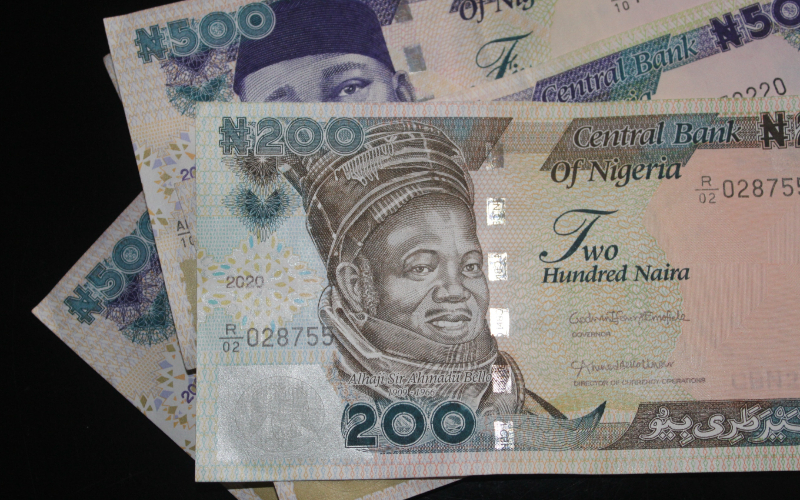The value of naira to dollar fell from N196.92 in June 2015 to N414.72 in June 2022, worsening Nigeria’s foreign debt burden.
Within the seven years under review, the naira depreciated by 52.52 per cent against the US dollar.
The Monthly Average Exchange Rates of the Naira (Naira Per Unit of Foreign Currency) for 2015 document obtained from the website of the Central Bank of Nigeria shows that the one dollar was N196.92 for Inter-bank Foreign Exchange Market.
The exchange rate for one dollar as of June 30, 2022, was N414.72, according to the figure provided by the CBN.
The PUNCH recently reported that Nigeria’s total external debt rose from $10.32bn as of June 30, 2015, to $40.06bn as of June 30, 2022.
This showed that there was an increase of 288.18 per cent in seven years, according to the external debt stock reports by the Debt Management Office.
A breakdown shows that in 2015, states had $3.27bn external debt while the Federal Government had $7.05bn.
By 2022, states’ external debt had risen to $4.56bn, while the Federal Government’s external debt was $35.5bn.
The debts include: loans from multilateral sources such as the World Bank, the African Development bank and the International Monetary Fund, including those from bilateral sources such as China, France, Japan, Germany and India.
They also include debts commercial sources, which include Eurobonds and Diaspora bonds.
If the CBN average exchange rate for June 2015 was used to weigh the country’s current $40.06bn foreign debt, Nigeria’s external debt in naira terms would have been N7.89tn.
However, with the exchange rate of N414.72 as of June 30 this year, the total external debt in naira terms was N16.61tn, showing a difference of N8.72tn.
By implication, it will cost Nigeria N8.72tn in naira terms if the country decides to pay back the $40.06bn external debt in 2022. If this same debt was incurred in 2015, Nigeria would have spent N8.72tn less, given the then exchange rate of N196.92/$.
Reacting, the Managing Director/Chief Executive Officer of Cowry Asset Management Limited, Mr Johnson Chukwu, said that high external debt would impose a huge debt service on the economy.
He said, “This will impose a huge debt service on the economy, particularly at a period when we have low revenue from oil sales. If the revenue from oil sales does not improve, then the government will be struggling to meet that debt service obligation to foreign lenders.”
However, he noted that Nigeria could service its foreign debt at the current level, but a constant increase in debt without a corresponding increase in foreign currency earnings could put the country in a difficult position.
Policy failure
In a bid to manage the value of the naira, the CBN introduced a number of policies such as stopping 41 items from accessing forex at the official market, offering N5 for every $1 of funds remitted to Nigeria through Internal Money Transfer Organisations, banning the supply of forex to Bureau de Change, among others.
However, these policies have not been able to guarantee naira stability.
The World Bank has said it disagrees with the CBN on how it tries to achieve price stabilisation of the naira, adding that the local currency should be allowed to respond to real pressures, and not be bottled up by the CBN.
It added that the country’s exchange rate strategy discouraged investors and increased inflation risks.
A Global Finance Report has also said that the CBN has failed to curb rising inflation and stop the naira from sliding against the US dollar.
The International Monetary Fund recently said that the long-term rate of the depreciation of the naira equated to a loss of 10.6 per cent of its value annually since 1973.
According to the IMF, this rate was 1.5 times higher than the long-term rate of the currencies of other emerging markets and developing economies at 7.2 per cent, and sub-Saharan Africa at seven per cent over the same time period.
The IMF said, “Its exchange rate underwent more persistent depreciation. Nigeria’s long-term rate of currency depreciation (on average 10.6 per cent annually since 1973) was 1.5 times higher than both EMDE (7.2 per cent) and SSA (seven per cent). Given limited availability of long-term data, it is difficult to estimate the exact reasons.”
The Bank of America recently said Nigeria’s local currency unit was set to weaken further next year as its current exchange rate to the dollar was well above fair value.
According to a report by Bloomberg, “Three indicators, the widely-used black-market rate, the central bank’s real effective exchange rate, and our own currency fair value analysis show the naira is 20 per cent overvalued.
“We see scope for it to weaken by an equivalent amount over the next six-nine months, taking it to as high as 520 per USD.”
During a workshop on tax expenditure organised by the ECOWAS Commission in Abuja, financial experts advised that Nigeria and other West African countries should move away from reliance on foreign assistance to finance developmental projects in the region.
According to them, over-dependence on financial aid and external loans might affect long-term prosperity for the entire region.
The Special Advisor to the Director (Custom Union and Taxation in ECOWAS), Gbenga Falana, while emphasising that the debt profile of most of the countries in the sub-region was mounting, stressed the need for West African countries to look inwardly and finance local projects through effective domestic resource mobilisation.
SOURCE: PUNCH











